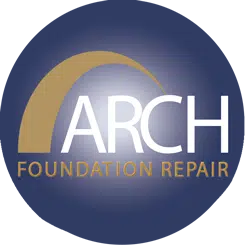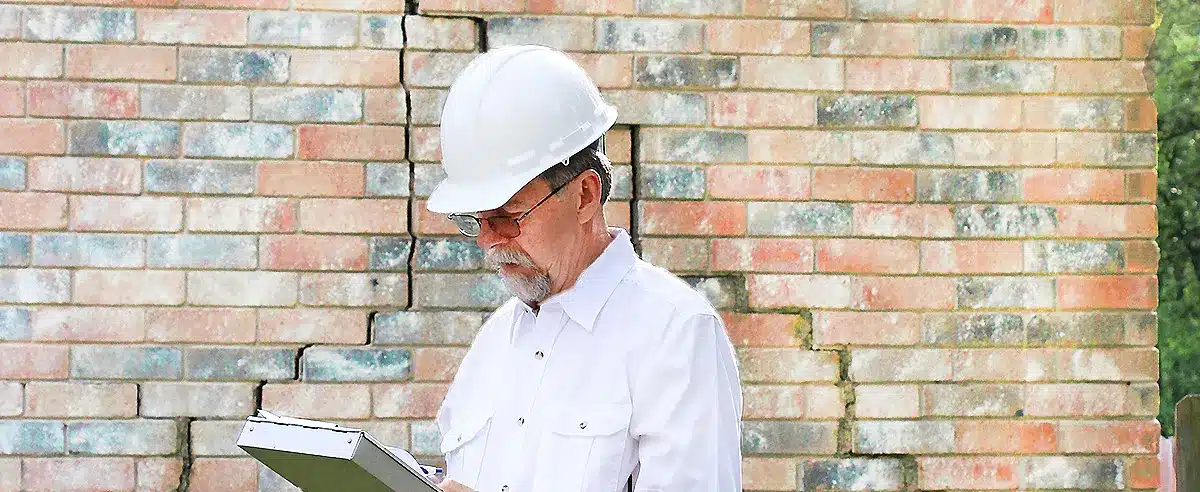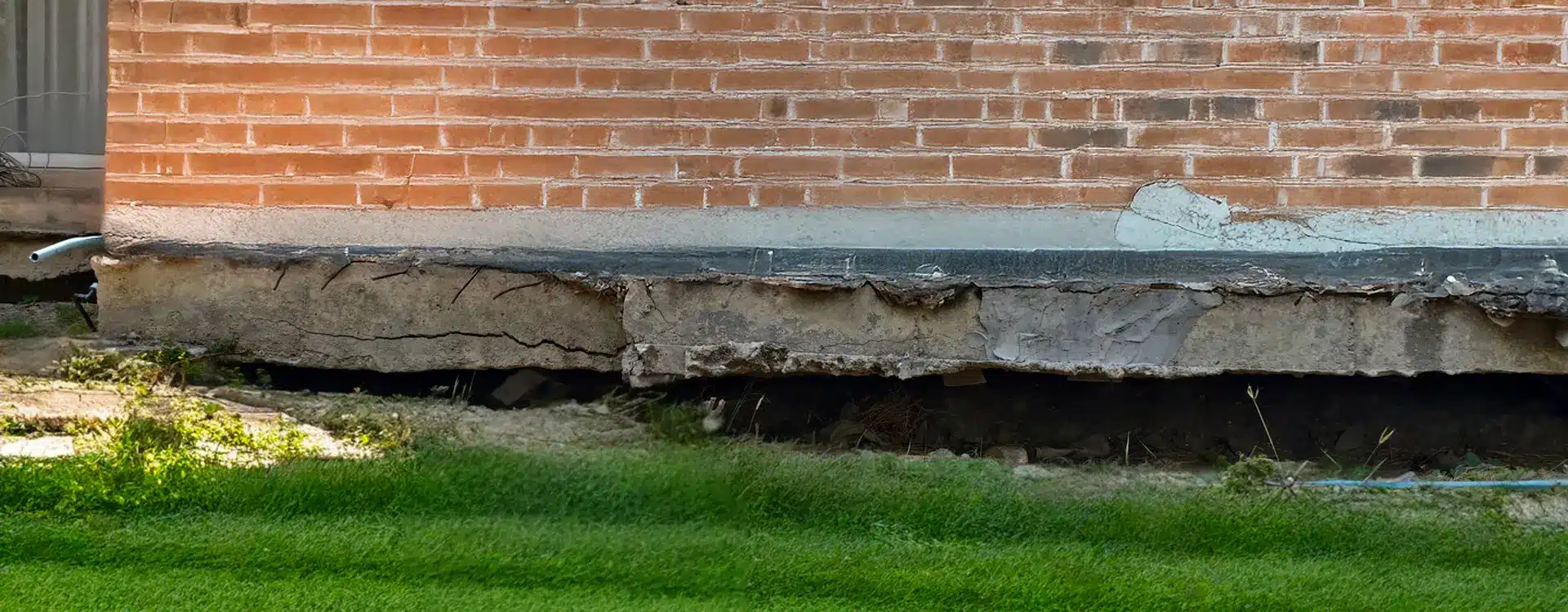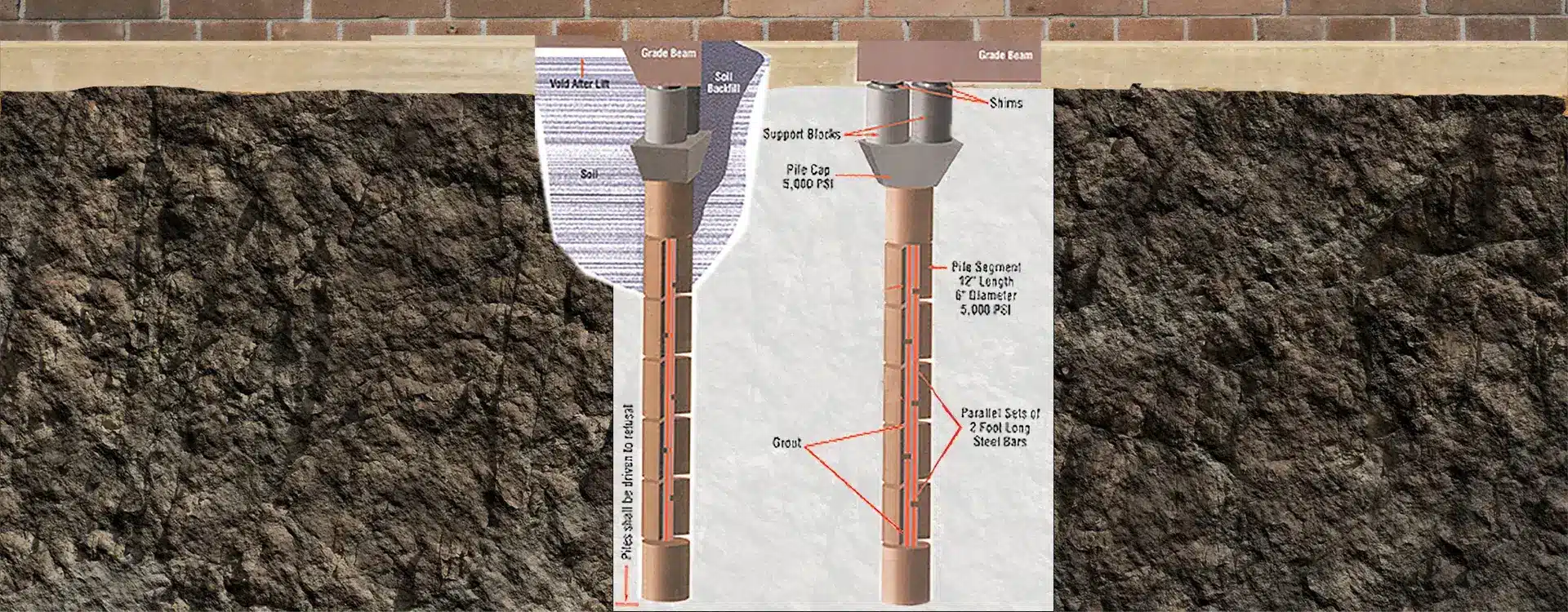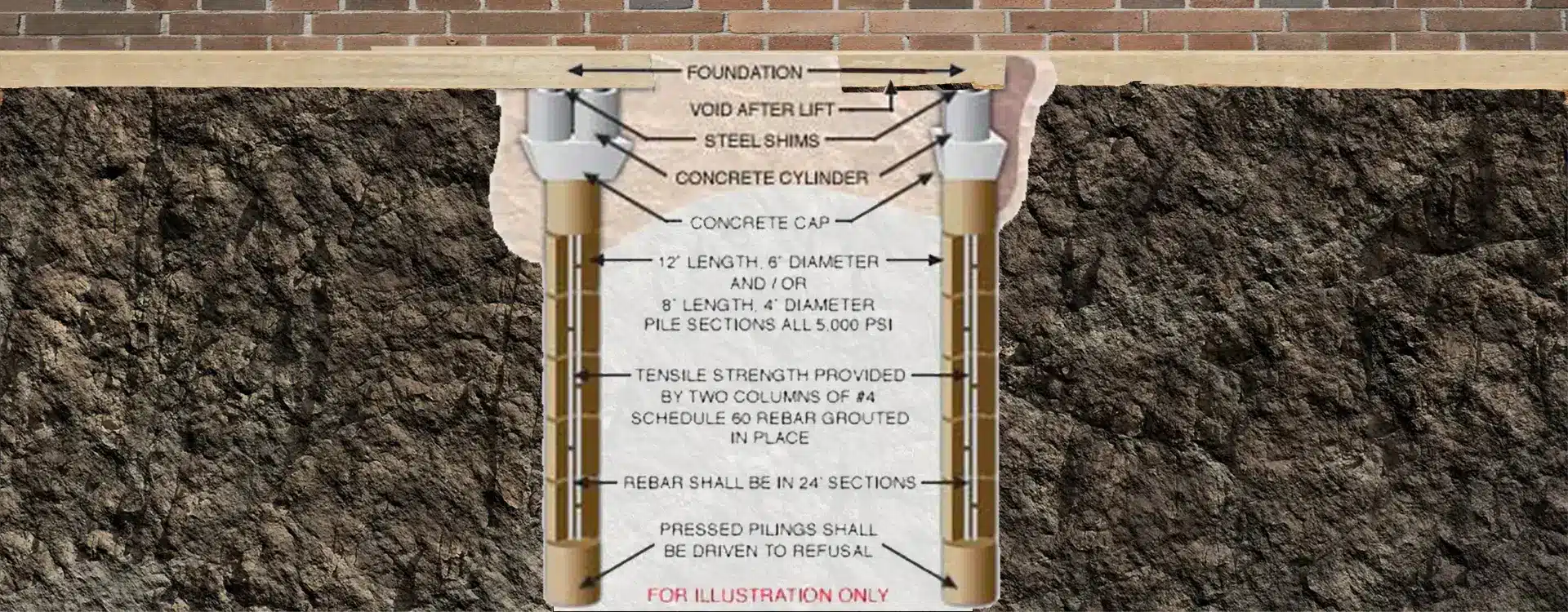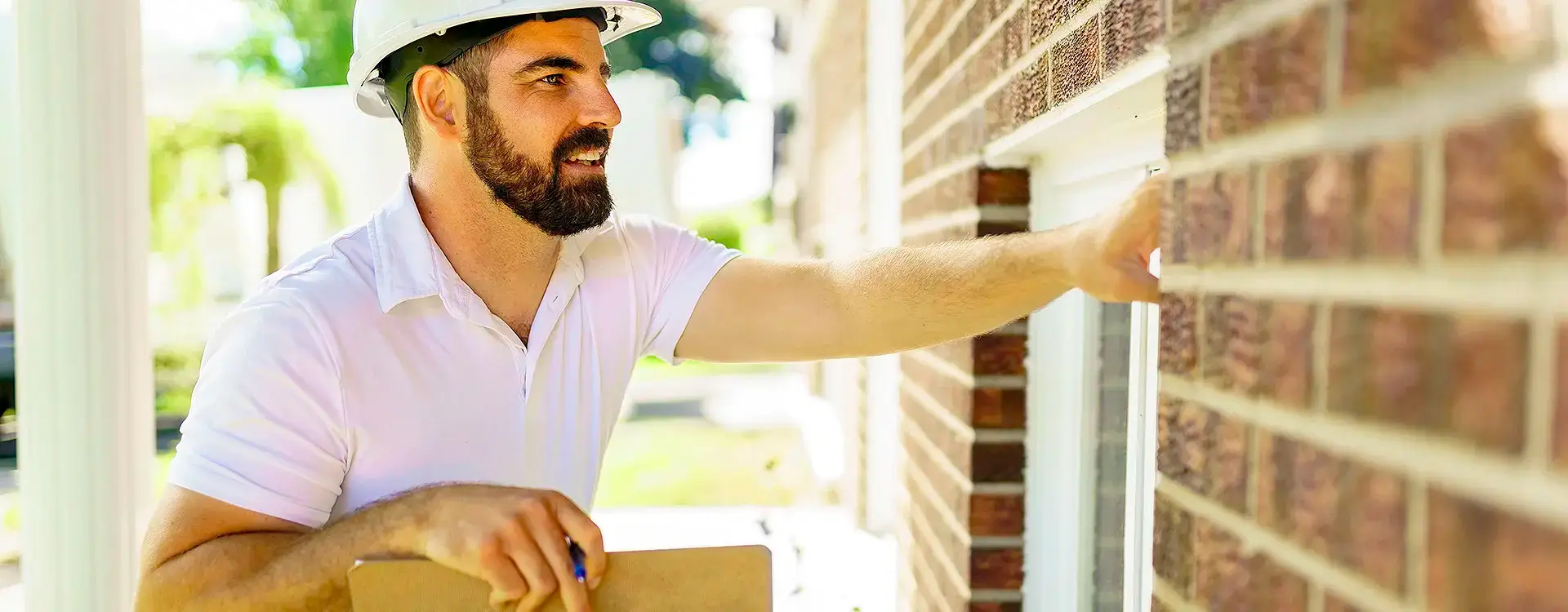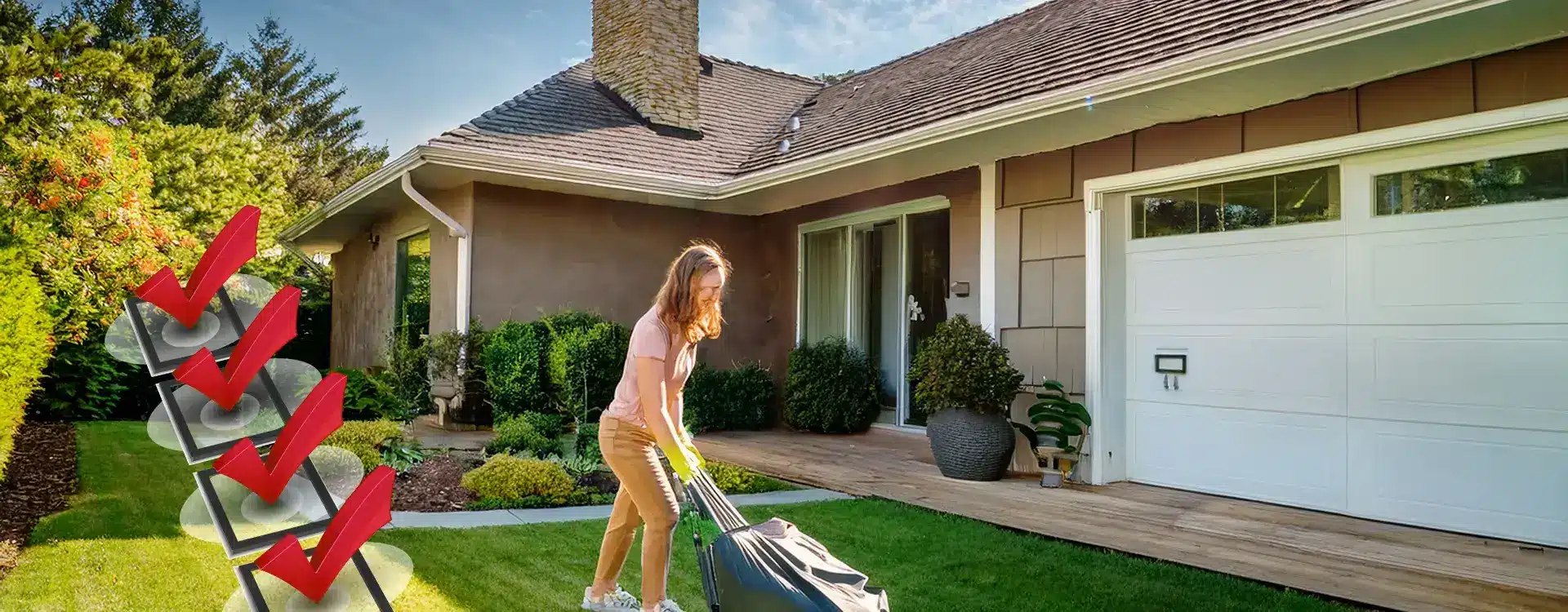Why Do Brick Walls Crack in Texas?
Know when to worry when brick walls crack. If you live in Texas and own a brick home, you’ve probably noticed cracks in your brick walls. You see hairline cracks and zig-zagging gaps. These cracks are common but not always harmless. In fact, some cracks are warning signs of serious foundation problems.
Follow along while we cover why Texas brick walls crack, what those cracks mean, and how to fix them the right way. We’ll also answer some common questions:
- Should you repair cracks before or after foundation work?
- What’s a DIY fix, and what requires a pro?
- Will cracks hurt my home’s resale value?
- Should I buy a house with cracked bricks?
Let’s dive in.
Common Types of Cracks in Brick House Walls
(and What They Mean)
Each type of crack tells its own story. We have outlined the 5 most common types of cracks you’ll see in Texas brick walls:
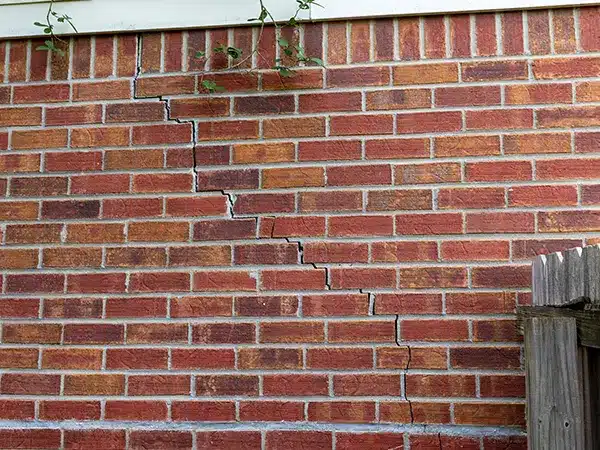
Stair-Step Cracks in Brick:
These follow the mortar joints in a zig-zag pattern. Zig-zag cracks in brick walls usually mean foundation movement, which is a major red flag in Texas.
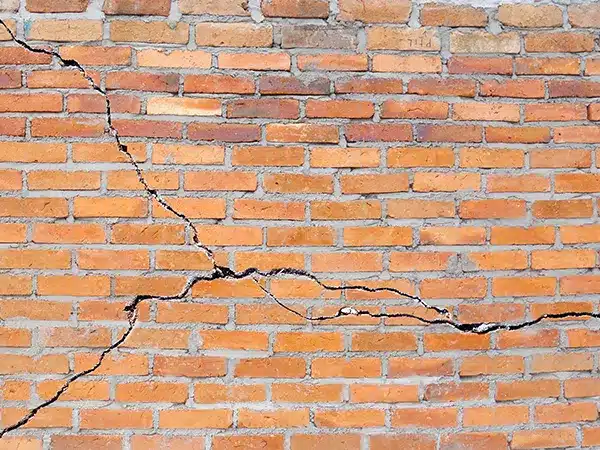
Vertical Crack in Brick Wall:
Cracks run straight up and down. They are often caused by settling, but vertical cracks are less severe than stair-step cracks. They still deserve attention.
Horizontal Cracks in Brick Walls:
These are the most serious. Horizontal cracks, especially those low on the wall, suggest lateral pressure or severe foundation stress.
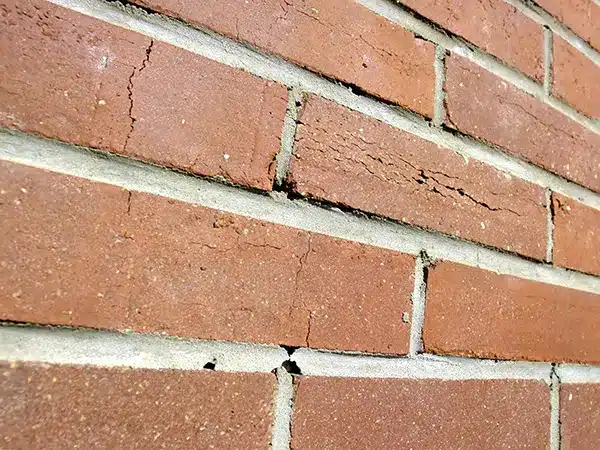
Hairline Crack in Brick:
Very thin cracks, usually in the mortar only, are often caused by normal shrinkage or thermal expansion and are usually cosmetic.
Expansion Joint Cracks:
Found near control joints (where builders expect movement), these cracks can widen over time, but are generally manageable.
Why Texas Homes Get So Many Cracked Bricks
Texas soil is notoriously hard on foundations — and brick walls are particularly vulnerable. The state’s expansive clay soil swells dramatically when it rains and shrinks during drought, causing homes to shift. Combine that with Texas’ brutal heat, heavy storms, and occasional freeze-thaw cycles, and brick walls end up under constant stress.
Poor drainage makes the problem worse, especially if water pools around the foundation. Older homes or homes built with subpar materials are even more vulnerable.
Exterior Cracks vs. Interior Cracks
Most people first notice exterior cracks since they’re easy to spot on the outer brick facade. These cracks, when exposed to weather and ignored, tend to widen faster.
Interior cracks in exposed brick walls or even drywall are more subtle but equally important. These often form when foundation movement transfers stress inside the home. While they may be less obvious, interior cracks that develop over time could indicate serious movement.
Fix Cracked Brick – What to Do Before and After Foundation Repair
Before Foundation Repair
Document every crack. Take photos, measure widths, and call in a professional foundation inspector (like Arch Foundation Repair) if you see stair-step or horizontal cracks. Wait before investing in cosmetic fixes until addressing the root cause of the foundation movement.
After Foundation Repair
Once you fix your foundation, it’s safe to tackle cosmetic crack repairs. Fixes include tuckpointing (replacing mortar), filling minor cracks, and possibly replacing damaged bricks. Just give your home time to “settle” after foundation work before completing cosmetic repairs.
What Will Foundation Repair Fix — and What It Doesn’t
What It Fixes
- Stabilizes your foundation
- Stops future structural movement (if drainage & soil issues are corrected)
- May close some cracks naturally
What It Doesn’t Fix
- Cosmetic appearance of bricks and mortar
- Pre-existing damage to exterior brick or interior finishes
- Any underlying drainage issues (these need separate attention)
How to Fix Cracks in Brick Walls & Cracked Mortar Repair
Small, Cosmetic Cracks (DIY-Friendly)
For minor hairline cracks, you can usually handle repairs yourself. Clean the crack thoroughly. Get out loose mortar between bricks. Once the crack is clean, fill it with flexible masonry caulk, such as Sika or Quikrete Mortar Repair. For slightly larger cracks, mix a matching mortar and apply it with a trowel or grout bag.
Larger Cracks (Call a Mason)
Do you see stair-step cracks? Are there horizontal cracks? Have you noticed cracks wider than ¼ inch? Answer “yes” to any of those questions, and it is time to call in a licensed mason. They know how to repair mortar between bricks, replace bricks if needed, and properly tuckpoint the wall using the right materials. If the wall is bulging or separating, you may need partial rebuilding.
Brick Crack Repair Products and Tools
| Product/Tool | Price Range | Best for | Effectiveness Rating (1-10) | Home Depot | Lowe’s |
| Quikrete Mortar Repair | $5 – $10 | Small cracks in mortar, stair-step cracks | 7 | Home Depot | Lowe’s |
| DAP Concrete Sealant | $8 – $15 | Brick crack sealer, hairline cracks, small mortar joints | 6 | Home Depot | Lowe’s |
| Sikaflex Mortar Sealant | $10 – $20 | Sealing cracked mortar, flexible fill | 8 | Home Depot | Lowe’s |
| Quikrete Zip & Mix Repair Mortar | $10 – $15 | Chipped brick repair, minor surface damage | 7 | Home Depot | Lowe’s |
| Quikrete Fast Set Repair Mortar Mix | $15 – $25 | Brick crack filler, filling deep cracks, quick-setting | 9 | Home Depot | Lowe’s |
| Epoxy Injection Kit | $50 – $150 | Structural cracks in brickwork | 10 | Home Depot | Lowe’s |
| Polyurethane Foam Filler | $30 – $80 | Filling cracks in brickwork, deep void filling, flexible expansion | 9 | Home Depot | Lowe’s |
| Masonry Caulk | $5 – $12 | Small cracks in mortar and brick | 6 | Home Depot | Lowe’s |
| Concrete Bonding Adhesive | $10 – $30 | Prepping surfaces before repairs | 7 | Home Depot | Lowe’s |
| Tuckpointing Trowel | $10 – $25 | Tuckpointing and mortar joint repairs | 8 | Home Depot | Lowe’s |
| Masonry Brush | $5 – $15 | Cleaning and prepping brick surfaces | 6 | Home Depot | Lowe’s |
| Grout Bag | $10 – $20 | Applying mortar into cracks | 7 | Home Depot | Lowe’s |
| Concrete Grinder | $50 – $200 | Grinding and smoothing cracked areas | 9 | Home Depot | Lowe’s |
Do Cracks in Brick Walls Hurt Your Home’s Value?
Absolutely — especially in Texas. Buyers (and their inspectors) pay close attention to cracks, knowing they could point to foundation trouble. Even minor cosmetic cracks hurt curb appeal, and larger structural cracks could drop your home’s value by 10-20%.
Texas law also requires sellers to disclose foundation repairs and known structural problems, so you can’t just patch and hide cracks.
That said, homes with a documented history of professional foundation repair — along with proper crack and mortar restoration — can regain lost value. In some cases, foundation work with a transferable warranty adds buyer confidence.
Should You Buy a House with Cracked Brick Walls?
It depends on the type and cause of the cracks. Cosmetic cracks with a clear repair history are usually fine. Cracks in the building need to be fully evaluated — ideally by a foundation specialist, not just a general inspector. If there are wide cracks, multiple stair-step patterns, or horizontal gaps, walk away or negotiate aggressively.
When in doubt, always request a foundation inspection before closing. The last thing you want is to inherit a home with hidden foundation damage.
Need an Expert? Call Arch Foundation Repair
If you see cracks in your brick walls — whether you’re buying, selling, or just maintaining your home — Arch Foundation Repair can help. We specialize in foundation inspections, repairs, and stabilization across the Dallas metro area. Our team knows exactly how to spot, diagnose, and fix the root causes of brick wall cracking.
Call Arch Foundation Repair today to schedule an inspection. Get answers about your home’s foundation health.
Final Thoughts
Cracks in brick walls are common in Texas. Learn how to understand the message each type tells. Do not ignore brick wall cracks. Knowing which cracks to worry about, how to fix them, and when to call for help. The savings could be in the thousands, and you protect your home’s value. From minor repairs to foundation repairs, understand your home’s needs.
Your home is one of the biggest investments you will make. Let Arch Foundation Repair help keep your foundation (and your brick walls) safe and sound.
Know When to Worry About Cracks in Brick Walls
Cracks in the ceiling of your home happen. Some are normal and easy to fix. Some mean there is a bigger problem. Hopefully, our guide helps you learn what different cracks mean. Address what you can. Get a contractor for the bigger problems. Choose the right product for the job. This way, you get a lasting fix and keep your home looking its best.
Are you concerned that there are foundation problems? Arch Foundation Repair is here to help. We assess your home’s foundation and provide lasting solutions. Don’t wait until a minor crack becomes a major issue—contact Arch Foundation Repair for an evaluation today!
Foundation Crack Series
- How to Repair Cracks Around Window Frames – Quick Guide
- How to Fix Concrete Floor Cracks in Slab? Ways to Great Results!
- How to: Filling Cracks Around Door Frames: Expert Ways to Make it Better
- How to Repair Wall Cracks, When to Worry, & When to Get Help
- How to Fix Ceiling Cracks DIY Tips – Are Cracks in Ceilings Normal?
- Signs of Foundation Problems: Why Does Grout Crack / Why Do Tiles Crack?
- Helpful Ways on How To Seal, Fill & Fix Cracks in Garage Floor
- Why Brick Walls Crack – When to Worry, Get General or Foundation Repairs
- How to Amend Clay Soil: Fill the Gap Between Soil and Foundations
- How to Fill a Gap Between Driveway and Garage & Foundation – Make Helpful Repairs
- Concrete Foundation Problems – What To Do If You Find Them
